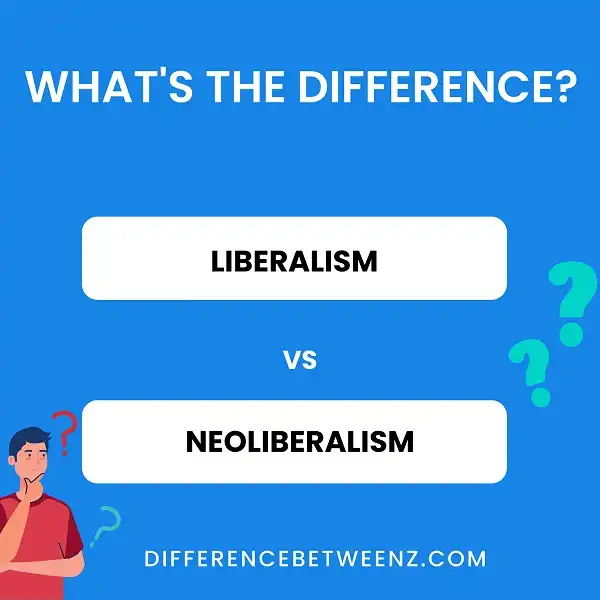Liberalism vs Neoliberalism
Difference between Liberalism and Neoliberalism:- The word “liberal” has strong connotations in modern political discussions. Many people self-identify as liberal in their political views but avoid such a label. All this confusion is due in part to the fact that the historical roots of Liberalism have produced a rich and diverse system of philosophical branches. In fact, many of these branches of liberalism stand out for being opposed to each other on many political and economic issues. The word “liberal” does not adequately reflect the definition of this philosophical concept.
Difference between Liberalism and Neoliberalism
Liberalism
Liberalism was the product of enlightened thought. John Locke is considered the father of liberal political thought, based on his prolific writing about the natural rights of individuals, the separation between state and religion, social contract, and other philosophical concepts – many of which were incorporated into democratic revolutions which took place decades after his death. This made Liberalism a movement that empowered the individual and challenged absolute monarchies.
However, in the late nineteenth and early twentieth centuries, Liberalism went from being an individualistic philosophy to one that is more common in human nature. Inspired by John Stuart Mill’s utilitarian concept of providing “the greatest happiness for the greatest number of people,” Liberalism sought to defend the “common good”; that is, a political and economic system that maximizes social progress for the group as a whole and not to benefit a portion of individuals. Franklin D. Roosevelt best embodies this value with the New Deal in the 1930s. This body of legislation produced a large-scale government infrastructure; which was characterized by public works projects, social safety nets, welfare, and reforms of financial institutions.
Today, the modern interpretation of Liberalism is associated with left-wing causes. Inspired by the New Deal, liberal economic thinking strongly empowers public institutions as a means to support people who are negatively affected by the external effects – such as poverty and pollution – of free market capitalism. On issues of political rights, Liberalism strives to ensure the civil liberties of minority groups; from the civil rights movement for African Americans in the 1960s to the ongoing struggle for equal marriage for the gay community.
Neoliberalism
During the last decades, a new form of Liberalism – or rather a reinterpretation of the original concept – emerged in the form of Neoliberalism. Not content with the lack of power of modern Liberalism in favor of the state, neoliberal philosophers return to the fundamental principles offered by Adam Smith’s “The Wealth of Nations.” Viewed as one of the axes for free market capitalism, Smith describes the need for human economic activity to be driven by the “invisible hand” of the market, rather than some government institution.
To quote Smith: “If all people strive as hard as they can to use their capital in support of national industry, they can also direct that industry for which their product can be of great value. Each individual would necessarily work to make the annual income of the society as large as they can. ”
That is, in the eyes of Neoliberalism; allowing individuals to be free to trade in unrestricted markets would produce greater wealth and conditions for an opulent society.
Neoliberalism – which is also known as “classical liberalism”; since it borrows some philosophical principles from the eighteenth century – is mainly due to a school of economic thought. He emphasized the importance of market deregulation and the privatization of public institutions. The transition from this philosophy of economics to a political movement has gained momentum in recent years with the rise of Liberalism in the United States. Although modern liberals can be equated with what is considered “modern conservatism” (although these ideas are liberal in some economic policies, are in complete disagreement with policies that relate to the role of the state in the private life of citizens); to be more specific, the rights of citizens to marry freely, cannot be subject to government oversight and freedom for the purchase and production of banned substances such as marijuana. For this current, the individual is the true arbiter of a free society; both in economic and political terms.


